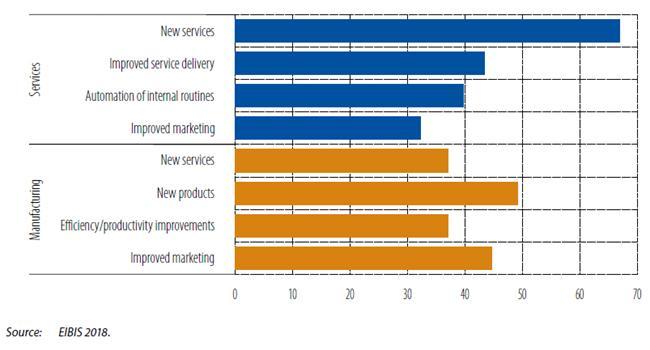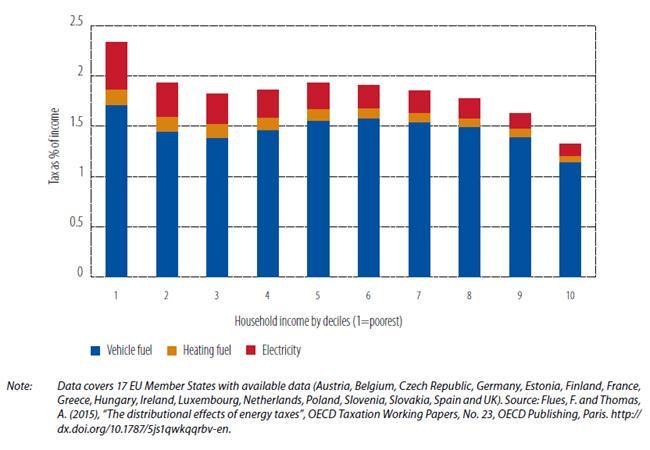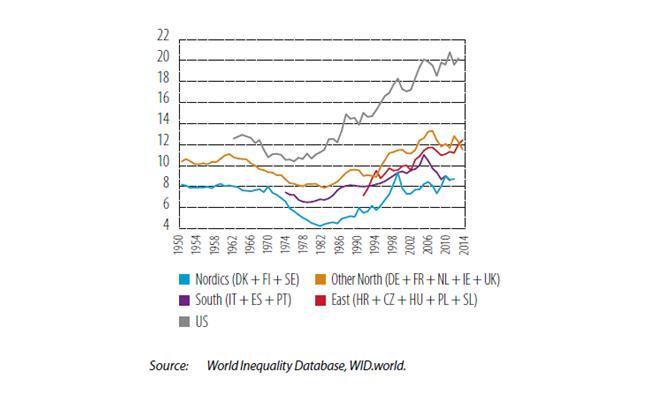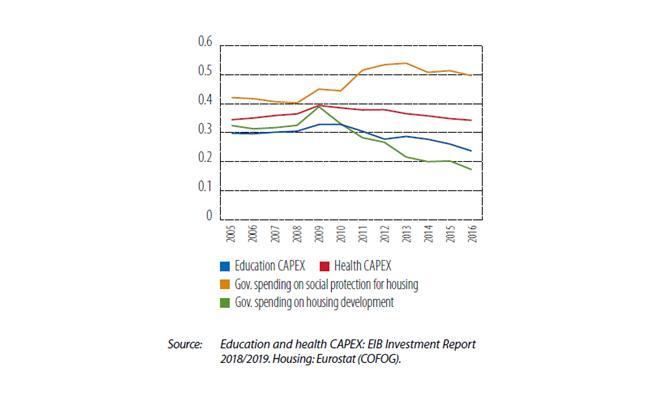To confront big challenges like climate change, Europe must build on its basic values. That’s the best way to ensure a sustainable, inclusive future for Europe’s economy.
Europe is not short of challenges. Policy makers are finally waking up to the need for action on climate change. Digital technologies are already having a dramatic impact on how we work and live in a world where it is increasingly hard to keep pace and compete. Traditional social policies are strained by global competition so that it is harder to maintain inclusive societies. Demographic change will make this tougher still.
We can’t afford to confront only one of these challenges. It’s daunting, but we have to battle all of them at the same time.
Don’t worry, because there is a framework for this big battle. Competitiveness, sustainability and inclusion are not alternative priorities, rather they’re three foundations on which future European prosperity and well-being will stand. In a new report by the European Investment Bank, our economists argue that these three issues are densely intertwined.
Inclusive investment in skills as the key to sustainable, inclusive future competitiveness
Data from the European Investment Bank Investment Survey shows that the firms that are most successful at digitalisation are already feeling less competitive pressure. They may even be gaining market power, which could lead to an even more skewed economic outcome in the future.
We also find evidence of a hollowing out of the labour market, with less wage growth among middle-earners. This potentially exacerbates inequality.
Our survey results show that finding skilled staff is a constraint, particular for the most innovative companies. Companies that bring new innovative products and services to the market feel that constraint most.
If we fail to invest enough in skills, we will steer businesses towards labour-saving automation that may create unemployment, rather than towards innovation that draws demand for new European products in the global market.

EU firms reporting a lack of staff with the right skills, by purpose of digitalisation (% of firms)
The climate transition must be innovative and fair
Without accelerated innovation, we have little chance of creating a carbon-neutral economy. At the same time, the climate transition is a huge opportunity for competitiveness.
China has emerged quickly as a global leader in clean tech. Europe needs to set ambitious goals for 2050, such as the full decarbonisation of the steel and chemical industries, and the restoration of Europe’s natural environment to a net carbon sink.
The climate transition must also be a just transition or it will fail. We need to recognise that we are all in the same boat, and that we must support the regions where change will be most far-reaching.
We need to recognise that lower income households may suffer the most from higher energy costs, even as they face higher barriers to investing in things that will move to the forefront of decarbonisation efforts, such as home renovation.

Lower income households in Europe spend more of their income on energy, making energy taxes mildly regressive
Ensure that Europe works for everyone
Indeed, we won’t create a sustainable, competitive Europe unless we protect and enhance the inclusion that gives everyone a stake and makes determined collective action possible.
But Europe’s social model is showing signs of strain. Income inequality has slowly been on the rise since the 1980s. The financial crisis led to divergence in the fortunes of regions in different parts of the EU.

Top 1% share of income (% of gross national income, pre-tax)
Families across the Union appear to be under increasing strain balancing work and family life. Yet this comes just as public investment in social infrastructure – to improve the quality of education, health, housing and care – has declined. Since the financial crisis, EU countries have spent more on social transfers for housing, but less and less on investment in new and better housing stock.

Top 1% share of income (% of gross national income, pre-tax)
Post-war progress in social mobility and opportunity may have stalled. It is morally and politically imperative to enable people to realise their full potential and gain the skills they need. It is also vital, if Europe is to create a globally competitive and sustainable economy.
Europe should focus on its strengths. The continent needs a vision that builds on traditions of openness to change and expanding opportunities, of quality of life for all. Europe needs to invest urgently for the well-being of future generations.
In this way, we can bring European citizens together to build a competitive, sustainable and inclusive Europe.
